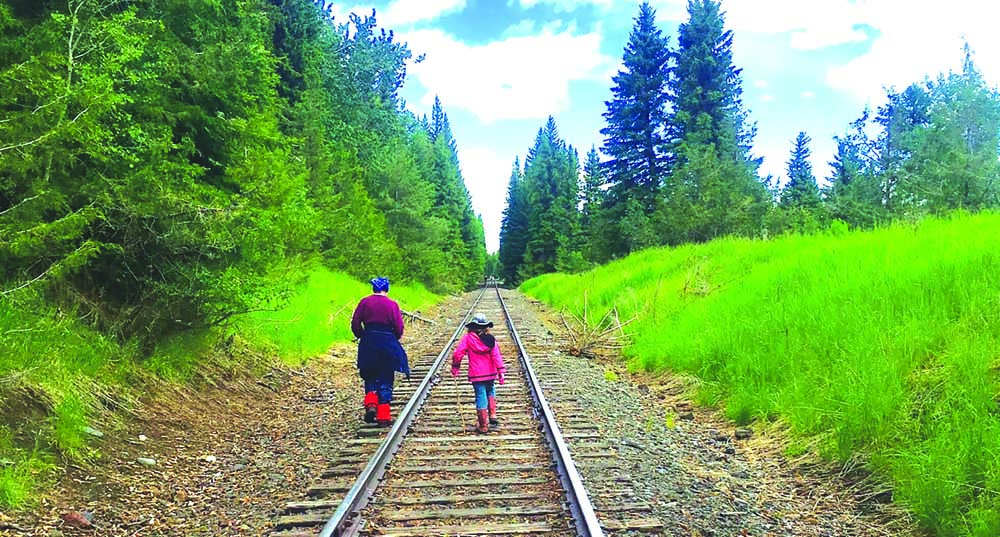Other views: Important to understand natural evolutionary processes in forests
Published 6:00 am Wednesday, March 8, 2023

- {photoSource}Bend Bulletin{/photoSource}
I want to provide an alternative to the worldview that Jim Petersen expressed (“Gray ghosts in the Blue Mountains,” March 1, 2023) that the Blue Mountains region needs more “active” forest management in the form of logging to preclude tree mortality due to drought, insects, disease, and wildlife.
The biggest problem with Petersen’s perspective and that of many in the industrial forestry cabal, which includes many at Oregon State University and other forestry schools, is their insistence on creating what they define as “healthy” forests.
In their view, any mortality from anything other than chain saws is a sign of decay and waste. And, of course, their solution is chain-saw medicine to “fix” what they assert is ailing the forests.
However, this perspective ignores climate change, evolution and natural ecological function.
We are witnessing higher mortality from natural processes primarily due to warming temperatures and significant drought. The ongoing drought across the West is the most severe in 1,200 years. Extreme drought drives all other mortality factors. Climate factors make some trees more vulnerable to insects or disease and contribute to large wildfires.
The continued myth that fire suppression is causing wildfires ignores the overriding role of climate/weather in wildfires.
A look at the climate/weather of the last century shows millions of acres charred by wildfire in the first part of the 1900s during a hot and dry spell. Indeed, in 1929 alone, wildfires scorched a record 50 million acres of the West. Then in the late 1930s, we entered a cooling period. Glaciers began to advance throughout the Cascades during this period. Finally, in the 1970s, scientists predicted we would enter another Ice Age.
The 1940s-80s is the same period that logging proponents claim fire suppression was so successful. Oh, indeed. Do you think a cool, moist climate had nothing to do with limited fire activity?
Was it more than coincidence that the largest wildfire in Western history — the 1910 Big Burn that charred 3.5 million acres of the northern Rockies — occurred during a significant drought fanned by high winds? And this was well before anyone could suggest there was “effective” fire suppression.
These same factors — drought, high temperatures, low humidity, and most importantly, high winds — are driving all large wildfires today. I do not know of a single exception.
And all these factors have increased significantly since the 1970s, primarily to the carbon-dioxide increase as a result of human burning of fossil fuels.
Contrary to logging proponents’ assertions that thinning/logging will reduce wildfire spread and fire severity, there is abundant evidence that chain-saw medicine increases wildfire spread.
For instance, a study of 1,500 fires in dry conifer forests across the West found that fire severity was highest in stands with “active forest management” while sites like wilderness where logging is prohibited had lower tree losses.
Ironically, proponents of chain-saw medicine never count the trees they kill with machines as a problem, but if the trees die from insects or fire, that is a “loss.”
However, they fail to acknowledge that “healthy forest ecosystems” require dead wood, snags, and other physical biomass in the forest. In essence, logging is strip-mining the forest biological legacy that sustains forest ecosystems.
It is critical to understand that natural evolutionary processes like drought, fire, insects, and other sources of mortality select the most vulnerable trees, leaving behind the individuals most adapted to the current climate/weather conditions.
In truth, logging reduces the natural ability to resist environmental variation. Logging is indiscriminate and removes trees that have a natural genetic resistance to current conditions. Logging creates “unhealthy” forests and degrades forest ecosystems.
The fact that the Forest Service, forestry schools, and the like all depend on ongoing logging to fund their salaries and research may explain their dedication to chain-saw medicine. I believe these folks are well-meaning but hold a worldview that they “fix” the forest.
As writer Upton Sinclair once said: “It is difficult to get a man to understand something when his salary depends upon his not understanding it.”
Do you have a point you’d like to make or an issue you feel strongly about? Submit a letter to the editor or a guest column.









